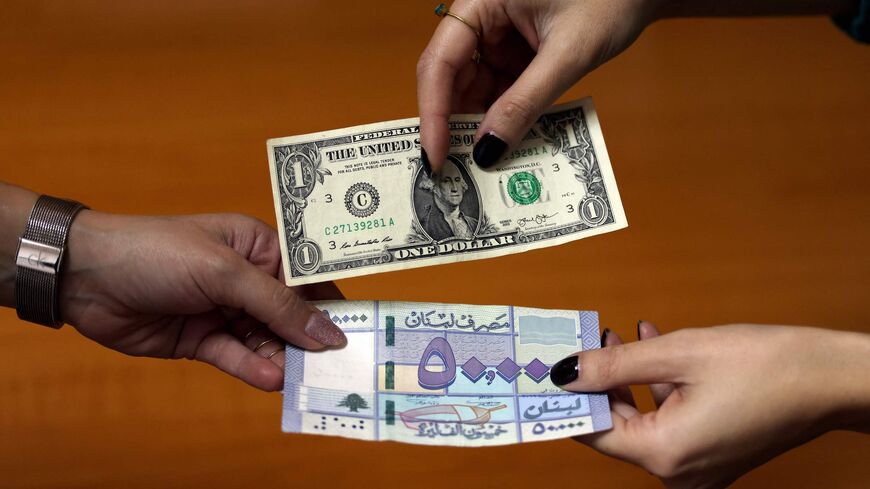BEIRUT — Thursday marked the lowest recorded exchange rate of the Lebanese pound to the dollar in Lebanon, reaching a whopping 50,000 pounds.
Meanwhile, the Lebanese Parliament failed in its 11th attempt to elect a president on Thursday, leaving citizens feeling even more hopeless.
The Lebanese pound has lost more than 90% of its value since the economic crisis in 2019 when the pound was at 1,500 against the dollar.
Since then, the prices of basic goods have skyrocketed leading to gas and medicinal shortages.
A World Bank report described Lebanon as a sinking ship and accused the country’s leadership of inadequate responses to the challenges the nation is facing.
Why it matters: Changes in the exchange rate affect a large portion of the population that still relies on salaries in the local currency. Most salaries have not been adjusted to inflation, meaning people have lost the mans to access basic necessities.
Most Lebanese have lost the bulk of their savings and cannot access their own money due to illegal capital controls by the banks.
Know more: The Lebanese pound has lost more than 97% of its value as the financial system has collapsed. Observers blame decades of corruption and mismanagement of public funds. Various politicians have been accused of abusing of their political status to get away with sketchy financial practices.
Many Lebanese are left jobless, families unable to pay for their children's schools and patients without health care. The collapse has caused an emigration wave.
The World Bank classified Lebanon’s crisis as one of the worst in modern history and has conditionally approved financial assistance of $3 billion upon the implementation of structural and financial reforms. But these reforms have been impossible to implement in this political environment.
A European delegation arrived in Lebanon this week and began an investigation into alleged money laundering and other financial crimes by Lebanon Central Bank Governor Riad Salameh and his associates.
Facing a political deadlock and an economic collapse, the Lebanese presidency has been empty since Oct. 31. The caretaker government seems to have no political will to conduct the reforms needed to bring in the assistance promised by the IMF and the international community.







